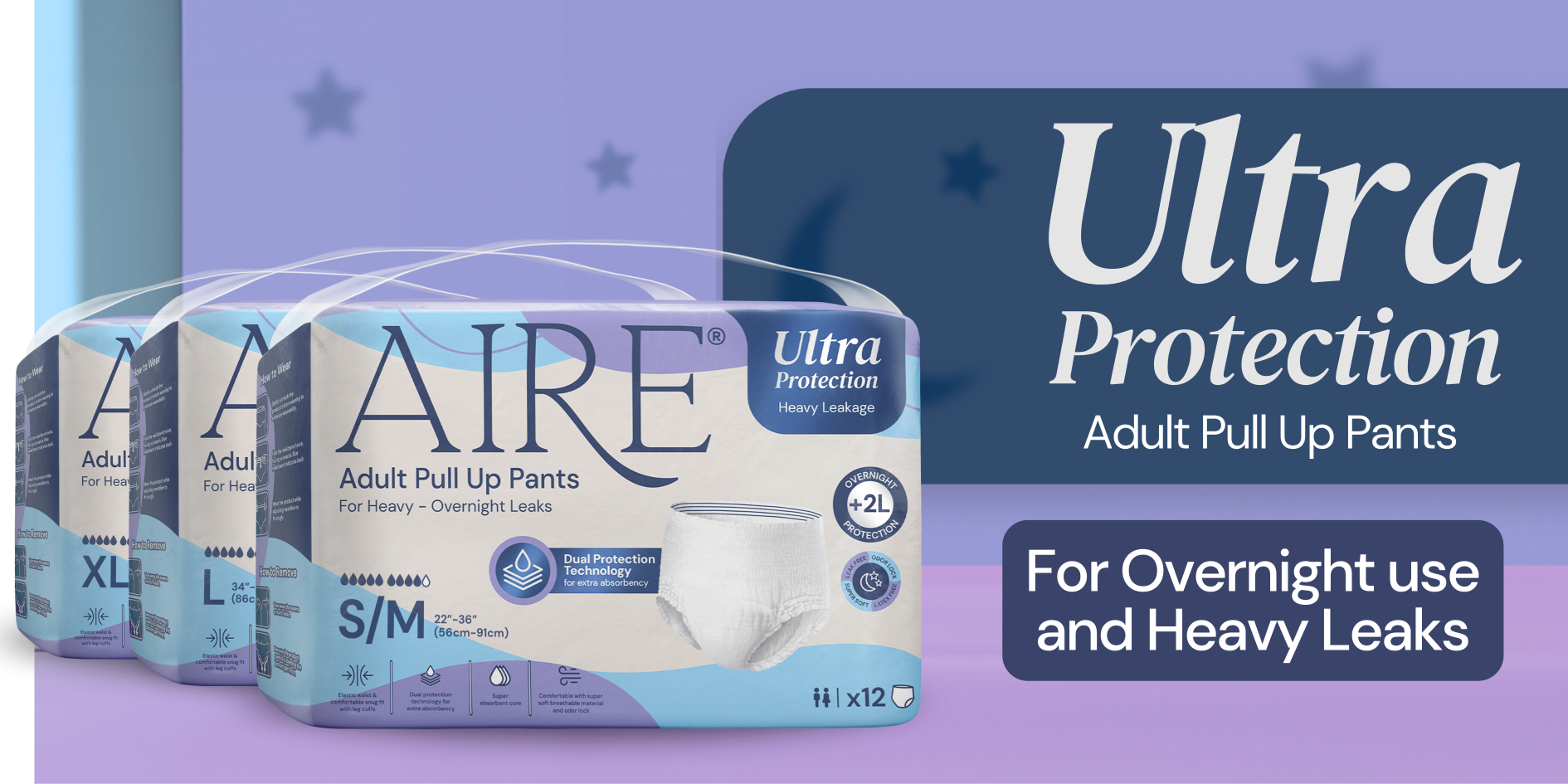When faced with urinary incontinence (the involuntary leakage of urine) you could often find yourself wondering what lifestyle changes would aid or affect it .Foods and beverages play a big role in managing urine leaks with some that you should avoid entirely and some that you should embrace wholly. Here are a list of foods and beverages that you should look out for:
Foods to Avoid
- Caffeine
Everybody’s favourite stimulant to start off the day. Found in coffee, tea, soda, and chocolate, caffeine is a well-known bladder irritant that increases bladder activity and leads to more frequent and urgent urination. For those with urinary incontinence, caffeine should be decreased or eliminated entirely from your diet.
- Alcohol
A faithful companion for many people’s long nights. Alcohol is a diuretic and bladder irritant that increases urine production and can decrease bladder control. Avoiding this beverage entirely or decreasing it substantially will help you immensely with a slight side effect of less fun nights.
- Carbonated Drinks
Everybody loves a sweet and fizzy drink on a hot day but unfortunately these carbonated drinks are a common irritant to the bladder lining. The combination of carbonation and, often, caffeine can worsen symptoms in urinary incontinence thus, opting for non-carbonated beverages can alleviate some of the discomfort.
- Spicy Foods
Singaporeans love their spicy foods from laksa to just plain old chicken rice. However, spice can irritate the bladder which leads to worse symptoms. If you can’t live without these spicy foods, consider opting for milder options to prevent the condition from worsening.
- Acidic Foods and Drinks
Citrus fruits or fruits high in acid, such as pineapples, grapefruits and oranges, as well as tomatoes and tomato-based products, are acidic which can irritate the bladder. Limiting these foods can help manage symptoms.
- Artificial Sweeteners
Some artificial sweeteners, such as aspartame, saccharin, and sucralose, can worsen urinary incontinence symptoms when taken constantly. To effectively control urinary incontinence, foods and beverages with artificial sweeteners should be lessened significantly.
- Sugar and Honey
Just like artificial sweeteners, excessive sugar intake can worsen the symptoms of urinary incontinence. Moderating sugar consumption would help you to control urinary incontinence and lessen its effects.
- Dairy Products
For some, dairy products can be a trigger for worsened urinary incontinence symptoms. Fortunately, the sensitivity varies, so it’s important to note any personal reactions to dairy and adjust accordingly. If you do want dairy to be part of your diet, opting for dairy alternatives like almond milk, could be more urinary incontinence friendly.
- Processed Foods
Processed foods are cheap and widely available but they come high in preservatives and additives and can be problematic when struggling with urinary incontinence. Therefore, it is important that you choose unprocessed foods as much as possible.
Foods to Embrace
- Water
Water, the essential matter to any living creature. Staying hydrated is crucial to reduce symptoms of incontinence but it is important to not over consume. It can help reduce bladder irritation and help dilute urine, so it is best to take water moderately throughout the day.
- Fiber-rich Foods
Whole grains, fruits, and vegetables rich in fiber help prevent constipation, which can put pressure on the bladder, leading to symptoms of urinary incontinence. Incorporate foods like brown rice, oats, quinoa, apples, pears, and leafy greens into your diet to help prevent constipation from happening.
- Non-acidic Fruits
While avoiding acidic fruit can help with controlling your urinary incontinence, eating non-acidic fruits like bananas, melons and watermelons can also help with controlling urinary incontinence. Adding these fruits to your diet will help immensely.
- Lean Proteins
Incorporating lean proteins can support overall health without worsening urinary incontinence symptoms. Some foods you can consider are skinless chicken, turkey, fish rich in omega 3 fatty acids and plant based proteins.
- Vegetables
Most vegetables are friendly to your bladder, but it’s important to avoid those that are spicy or highly seasoned. Good options to consider adding to your diet include cucumbers, zucchini, green beans, and sweet potatoes.
- Herbal Teas
Some herbal teas without caffeine, such as chamomile or peppermint, can be soothing and hydrating, making it easy on the bladder. Lucky for the tea lovers, not all teas are off the table.
- Healthy Fats
While the term “fats” does have a negative reputation, healthy fats can help manage incontinence symptoms. Incorporating healthy fats from sources like avocados, nuts, seeds, and olive oil can support overall health without affecting bladder control. Additionally, these fats are also beneficial for heart health and overall well-being.
- Foods Rich in Magnesium
Magnesium can help with muscle and nerve function, including the muscles of the bladder. Coupled with daily kegel exercises, food rich in magnesium will help strengthen your pelvic muscles, thus reducing the symptoms of urinary incontinence. Examples of foods high in magnesium include leafy greens like spinach and kale, nuts and seeds like pumpkin seeds and almonds, and legumes like black beans and edamame.
- Probiotic-rich Foods
Supporting a healthy gut microbiome can benefit bladder health. Probiotic-rich foods, such as yogurt with live cultures, kefir, and fermented foods like sauerkraut and kimchi, can promote digestive health and potentially reduce urinary incontinence symptoms.
Practical Tips for Managing Diet and Urinary Incontinence
- Keep a Food Diary: Track what you eat and drink along with any changes in your symptoms. This can help identify specific triggers.
- Eat Smaller, Frequent Meals: Large meals can put pressure on the bladder, so smaller, more frequent meals might be more comfortable.
- Stay Hydrated, But Balance Intake: Drink enough water to stay hydrated, but avoid excessive intake, especially before bedtime.
- Choose Bladder-friendly Snacks: Opt for snacks like plain yogurt, whole grain crackers, or sliced cucumbers to avoid triggering incontinence.
- Consult a Healthcare Provider: Always discuss dietary changes with a healthcare provider or a registered dietitian, especially if you have other health conditions.
While it is tough to take foods that you’ve enjoyed for so long out of your diet, it is wise to take these foods into account so that you can better manage urine incontinence.
References:
https://www.healthline.com/health/overactive-bladder/overactive-bladder-diet
https://avacaremedical.com/blog/incontinence-diet-foods-to-help-with-incontinence.html
https://avacaremedical.com/blog/incontinence-diet-foods-to-avoid.html



